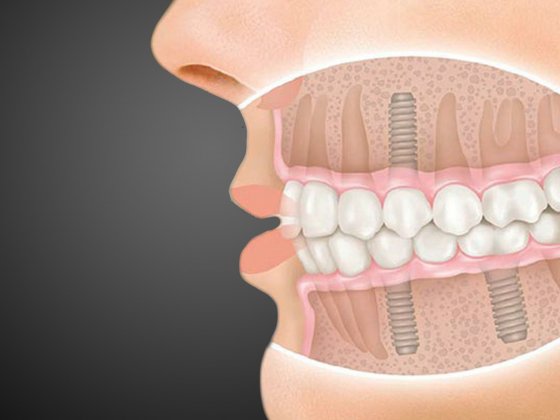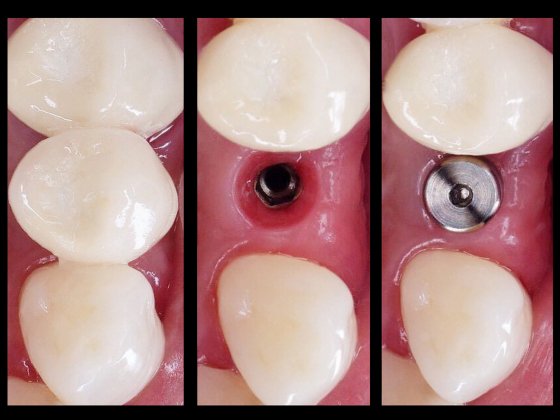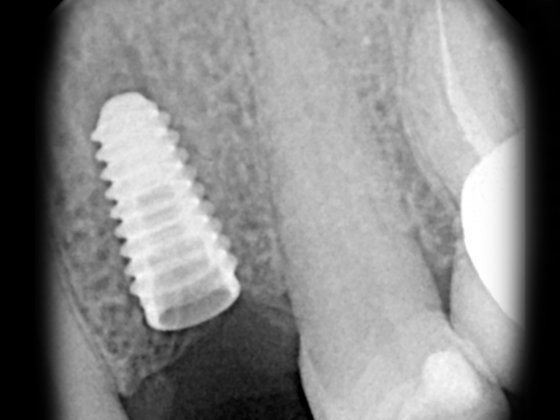Dental Implants
What are dental implants?
Dental implants are substitutes for the roots of missing teeth. An implant is placed into the jaw to serve as an anchor for replacement tooth/teeth or other dental prostheses like crowns, bridges and dentures.
Am I a candidate for implants?
Anyone who has lost a tooth and is in good general and oral health is a good implant candidate. Adequate bone in your jaw is needed to support the implant and the best candidates have healthy gum tissues that are free of periodontal (gum) diseases.
What are the advantages of dental implants?
Bone preservation: After tooth extraction, bone undergo resorption process. Putting implant in the bone will stop this process
Because implants fuse to your jawbone, they provide stable support for artificial teeth. Dentures and bridges mounted to implants won't slip or shift in your mouth — an especially important benefit when eating and speaking. This secure fit helps the dentures and bridges — as well as individual crowns placed over implants — feel more natural than conventional bridges or dentures.
What is the difference between bridge and implant?
One of the biggest benefits of dental implants is that they protect the other teeth. In the case of a dental bridge, the natural teeth have to perform the function of support. The implant is not putting any strain on other teeth.
Implants require little maintenance. This is one of the biggest differences between this option and dental bridges. High quality implants can last a lifetime. Dental crowns and bridges will have to be replaced every 10 to 15 years
How long do dental implants last?
With proper oral hygiene, nutrition and routine dental check-ups, your dental implants can last a lifetime.
How long does the whole dental implant process take?
The patient under goes thorough implant consultation followed by a medical evaluation & send for dental C.T. Scan.
According to the clinical and X ray examination the dentist will make the treatment plan in which he will decide number, size and position of the implant
The next step in the dental implants process is the placement of the implants. A thin titanium rod will be attached to the jawbone under the gumline in the area of the missing tooth. .
A period of several months after placement of the implant will be necessary for it to fuse itself to the jawbone. A temporary crown can be placed over the implant during this period.
The third and last step of the dental implants procedure is called implant restoration – the placement of a permanent dental crown.
Is dental implant surgery painful?
No. An effective local anesthetic is used during the surgery so that you do not have any discomfort during the placement of the implants. The mild discomfort you might experience after surgery can be controlled with medications.
Are dental implants safe?
Dental implants have been in use for more than 30 years.
Dental implants are typically made of titanium, a biocompatible material that is accepted by the body and serves as a strong and sturdy foundation for replacement teeth.
Dental implant surgery is one of the safest and most predictable procedures in dentistry when performed by a trained and experienced dental implant dentist
How do I care for my new dental implants?
Treat your implants like your natural teeth. Brush and floss regularly. Remember to go for regular dental appointments. Your "new teeth" require regular check-up by your dentist to ensure that the surrounding gums and bone are healthy, and that the dental restorations attached to your implants are secure and functioning properly.


